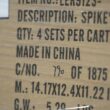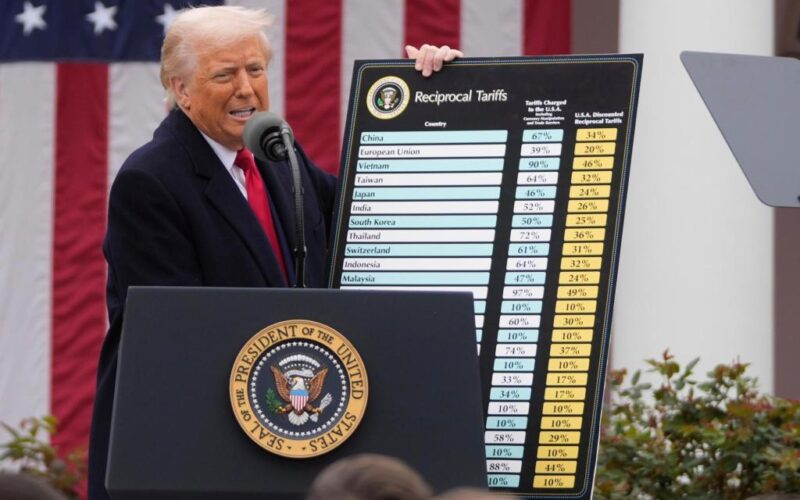A week ago today, Donald Trump declared World War III against every other country on the globe with his tariffs. So far, he and us, the people of the United States, are losing the war. The problem is that Trump believes he is winning, as he always thinks he is winning (or he is being cheated of his rightful victory).
While we don’t generally comment on the stock market in this space, yesterday was the fourth straight day of heavy losses for the Dow since Trump’s ridiculous “Liberation Day” and the S&P 500 fell under 5,000 for the first time in a year. Trillions in value have evaporated.
Trump ran last year promising that he would lower the price of eggs, not the size of nest eggs, for anyone with the stomach to look at their rapidly shrinking 401(k).
The president and his blindly loyal aides claim the tariffs, which reached an idiotic 104% in duties on all goods from China overnight, are working because the White House is being flooded with calls from foreign governments. Of course they are calling to ask for an end to the tariffs, which are unilaterally-imposed taxes Trump has placed on American buyers and overseas sellers.
Elon Musk, who has lost billions in the past week from the tariffs, wasn’t wrong to call Trump trade advisor and tariff advocate, the quack economist Peter Navarro, a “moron” and “dumber than a sack of bricks.” Musk later reconsidered, putting on X that he wanted to “apologize to bricks. That was so unfair to bricks” while throwing in a nasty play on Navarro’s name.
The White House press secretary blithely said that: “boys will be boys, we will let their public sparring continue.” And they will let the tariffs continue.
Navarro and his pupil Trump are pursuing a policy of mercantilism, a discredited theory from feudal days that counted the country that collects the most gold as the best off. Mercantilism didn’t work, trade did, and in the year of our political revolution, 1776, Adam Smith wrote in “The Wealth of Nations” about comparative advantage, creating an economic revolution.
Under comparative advantage it is better for Lesotho in southern Africa to make T-shirts for export to America and elsewhere, while the U.S. exports, say, computer software. We wear T-shirts from Lesotho and in Lesotho they use American computer programs. But under Navarro and Trump, we wouldn’t buy Lesotho’s T-shirts, but make our own. Are we going to set up T-shirt factories here now?
Enough Republicans in the Senate are willing to join with the minority Democrats to pass legislation giving Congress a say on tariffs. But House Speaker Mike Johnson doesn’t even want to consider it, saying on Monday that: “We have to give the president space. His strategy is playing out. It’s been less than a week, so I think he’s owed that.” How much is Trump owned? How much carnage to world trade and the U.S. economy will Johnson tolerate?








